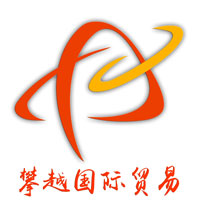From the perspective of import customs clearance, new machinery can be processed relatively easily as long as all procedures and documents are complete. The clearance process for excavators, cotton pickers, and printing machines used in factories follows similar methods, though specific detailed documents may vary slightly depending on the type of machinery.
- Basic trade documents: Packing list, commercial contract, invoice, certificate of origin;
- Machinery-specific documents: Machinery manual, detailed descriptions of machinery functions and operating principles.
These documents need to be properly prepared through collaboration between the seller, buyer, and customs brokerage company. Once ready, the machinery can be shipped to the designated port in China for declaration, tax payment, and customs inspection. After customs clearance is approved, the buyer can take delivery of the goods.
- Business license;
- Customs Registration Certificate for Import and Export Consignors/Consignees;
- Record-filing Certificate for Self-Inspection Enterprises;
- Organization Code Certificate;
- State and Local Tax Registration Certificates.
Additional Supporting Documents: Bill of Lading (B/L), insurance policy, and certificate of origin (for goods eligible for preferential tariff rates).
In principle, the buyer is required to have import and export operation rights. However, if the buyer does not possess such rights (e.g., purchasing machinery in an individual capacity), they can authorize a professional customs brokerage company to handle all import procedures on their behalf, ensuring compliance and smooth processing.
- Confirm the HS code of the machinery to identify the corresponding regulatory requirements;
- For goods requiring an Automatic Import License, apply for the license in advance before the goods arrive at the port. For goods eligible for preferential tariffs, inform the client to apply for the Generalized System of Preferences (GSP) Certificate of Origin in advance;
- Upon the goods’ arrival at the port, exchange the bill of lading for the delivery order, then arrange for inspection and customs declaration;
- Customs reviews the declared value, issues the tax bill, and the buyer pays the required taxes;
- Wait for joint inspection by customs and inspection and quarantine authorities. Once no discrepancies are found, customs will grant clearance;
- Arrange for trucking services to deliver the machinery to the designated location.
The above process applies to both large and small machinery, including but not limited to:
- Large machinery: Excavators, loaders, construction engineering equipment, medical equipment;
- Small machinery: Processing tools, computers, jigs, and other small-scale industrial equipment.
Since its establishment, Guangzhou Panyue International Trade Co., Ltd. has handled the import declaration of over 10,000 units of machinery. We proactively identify potential issues in the import process, resolve them one by one, and conduct in-depth analysis of complex problems to develop targeted solutions. By refining every operational step and mastering all customs clearance details, we ensure precise and efficient handling of machinery import businesses for our clients.


 One-on-One Service
One-on-One Service Fast Processing Cycle
Fast Processing Cycle Twenty Years of Import & Export Experience
Twenty Years of Import & Export Experience A Large Number of Successful Cases
A Large Number of Successful Cases
 Online Consultation
Online Consultation